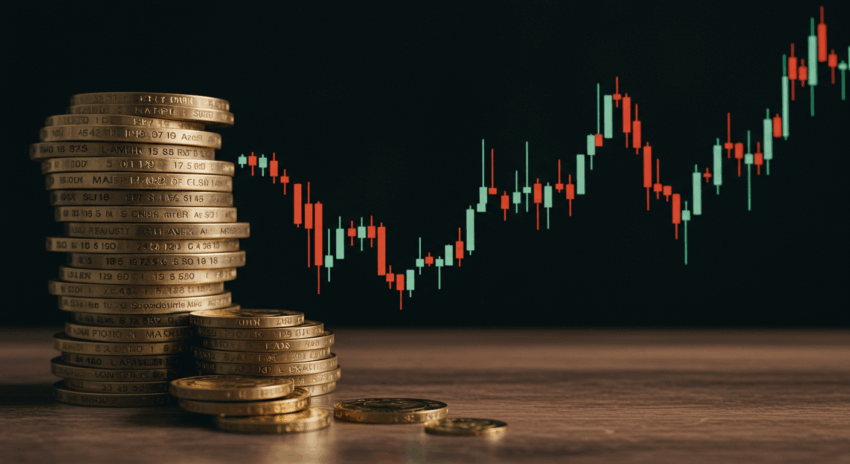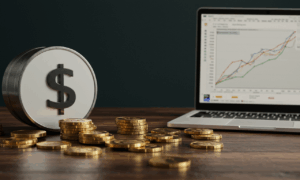ECONOMY
-
Inflation Shows Signs of Cooling
This week brought some welcome news on the economic front: the rate of inflation slowed down more than expected in May. The Consumer Price Index (CPI), which measures the average change in prices paid by consumers for a basket of goods and services, showed a smaller annual increase than the previous month. A significant factor was a drop in gasoline prices, offering some relief to household budgets. This development is crucial because persistent inflation erodes purchasing power and is a primary concern for economic policymakers. A slowdown in price increases is a positive signal that the economy might be stabilizing, which could influence future decisions on borrowing costs.
-
Federal Reserve Holds Rates Steady, Lowers Cut Expectations
In a highly anticipated decision, the U.S. Federal Reserve announced it would keep its key interest rate at its current level. This was not a surprise. What did catch the market’s attention, however, was the Fed’s updated outlook for the rest of the year. Policymakers now project only one rate cut in 2024, a decrease from the three they had signaled earlier in the year. This more cautious stance indicates that the central bank wants to see more conclusive evidence that inflation is firmly under control before making it cheaper to borrow money. For the average person, this means that rates for mortgages, auto loans, and credit cards will likely remain elevated for longer than previously hoped.

FINANCE
-
Political Uncertainty in Europe Rattles Markets
Financial markets are not fond of surprises, and a major one came from Europe this week. The announcement of a snap legislative election in France sent a wave of nervousness through the region’s financial system. Political instability creates uncertainty about future economic policies, from government spending to regulation. In response, investors began selling off French stocks and government bonds. When investors sell government bonds, their price falls and their yield (the return an investor gets) goes up. This effectively increases the borrowing cost for the government, which can have wider implications for the country’s finances and the stability of the Eurozone.
-
“Buy Now, Pay Later” Services Face Stricter Rules
The popular “Buy Now, Pay Later” (BNPL) financing option, which allows shoppers to split payments for purchases into smaller, often interest-free installments, is coming under greater regulatory scrutiny. U.S. consumer protection agencies are moving to apply traditional credit card laws to BNPL lenders. This change would grant consumers using BNPL services the same rights as credit card users, such as the ability to dispute charges for faulty products and demand a refund. The goal is to create a more level playing field and ensure robust consumer protections are in place as these new forms of credit become more widespread.
INVESTMENTS
-
Tech Giants Push Stock Market to New Records
The U.S. stock market, particularly the tech-heavy Nasdaq and the broad S&P 500, climbed to new all-time highs this week. The driving force continues to be enthusiasm for Artificial Intelligence (AI). Apple’s stock value surged after it detailed its new “Apple Intelligence” strategy, which will embed AI capabilities across its ecosystem of devices. This, combined with the continued powerful performance of chipmaker Nvidia, highlights how a handful of mega-cap technology companies are fueling much of the market’s upward momentum. Investor confidence in the long-term profitability of AI is a dominant theme shaping investment portfolios right now.
-
Concerns Over a Narrow Market Rally
While the headlines celebrate record-breaking market indexes, a deeper look reveals a potential concern: the rally is very concentrated. This phenomenon, known as a lack of market breadth, means that the gains are being driven by a very small group of massive companies, mostly in the technology sector. Many other stocks in different industries are not participating in the rise. Some analysts view this as a potential risk, as the market’s health becomes overly dependent on the performance of just a few stocks. Investors are now closely watching to see if the rally will broaden out to include more sectors of the economy, which would signal a more sustainable and healthy market advance.
Frequently Asked Questions (FAQ)
Q: What does it mean for my wallet when the Federal Reserve signals fewer interest rate cuts?
A: When the Fed signals fewer rate cuts, it means they plan to keep borrowing costs higher for longer. For consumers, this directly impacts variable-rate loans. You can expect interest rates on credit cards to remain high. For those looking to buy a home or a car, it means that mortgage and auto loan rates are unlikely to come down significantly in the near future, keeping monthly payments elevated.
Q: Why is a “narrow” market rally, led by just a few stocks, considered a potential risk?
A: A narrow rally is considered risky because the entire market’s performance becomes highly dependent on the fortunes of a small number of companies. If one of these key companies were to face unexpected trouble—such as poor earnings or regulatory issues—its stock could fall, dragging the entire market index down with it. A broader rally, where stocks from many different industries are rising, is seen as healthier and more stable because the risk is spread out more evenly.



